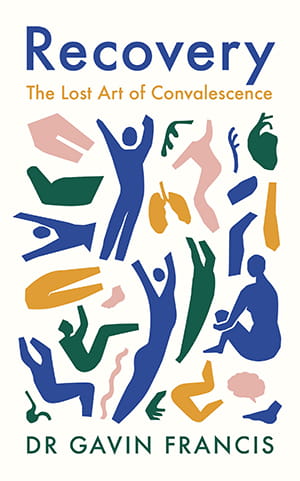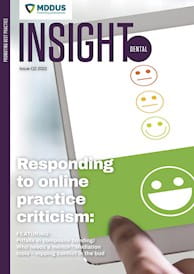
Welcome Collection, paperback, £4.99, 2022
Review by Dr Greg Dollman, Insight editor
“The word rehabilitation comes from the Latin habilis, ‘to make fit’, and carries the sense of restoration: ‘to stand, make, or be firm again’.”
In his latest book, GP and writer Gavin Francis shares his thoughts about the lost art of convalescence.
Around this time last year, I reviewed Dr Francis’ book Intensive Care: A GP, a Community & COVID-19. He wrote on behalf of the medical profession, eloquently telling of “the evolution of a pandemic seen from inside that profession, carrying on its work quietly, unobtrusively”.
In Intensive Care, he recognised that one of the greatest challenges, along with ‘long Covid’, facing the NHS in the years ahead will be the mental health repercussions from the pandemic and lockdown and that “the work of medicine is without end”.
It is fitting then that Recovery comes at a time when more than ever there is a need for us all to have somewhere safe to recover and to be ‘made firm again’.
Illness is something that comes to each of us, and while we may have little control over when it does, we do play an important part in deciding how we respond.
Throughout our lives we are challenged with achieving balance, and this extends to our health and wellbeing (Francis reminds us of the World Health Organisation’s definition of health as "a state of complete physical, mental and social wellbeing and not merely the absence of disease and infirmity"). Francis feels that recovery from illness, like life, is dynamic, and so there is always the opportunity to work towards a better balance.
How do we achieve this balance? This may be as simple as being mindful in the moment (or experiencing joy vicariously through others). Francis recognises that modern medicine may not allow us the time for recovery that was afforded to people in the past. And so he encourages the reader to "charge your environment with as much as you’re able of space, light, cleanliness, greenery, quiet".
At 116 pages, Recovery is a quick read. Yet it provides a platform for greater exploration. It includes a mention of ancient physicians and their thoughts about convalescence, to more recent historical approaches, including the work of Florence Nightingale.
Francis acknowledges that his explorations of healing and convalescence are based in his tradition as a European general medical practitioner. He recognises the value and the merits of alternative approaches to understanding and treating illness, and does not seek to comment on those in his book. However, he makes reference to them and includes commentary from other writers, physicians and philosophers.
Francis would like to see the value of time restored to the practice of medicine. He looks to the past when considering how we should convalesce now and in the future. For example, he describes the difference in the places we recover (the fresh air and abundance of light – and peace and tranquillity – in traditional convalescence homes are often missing in modern hospitals). However, the past does not hold all the answers.
Time is a precious commodity in modern life. Is it more important than health and wellbeing though? The book recognises the interaction between biological, psychological and sociological factors in the healing process. It is also a political issue: society needs a workforce, and can governments afford the costs associated with time off for proper recovery?
This inevitably leads Francis to consider the role of the doctor, and also burnout – and what needs to be done to stop this.
The book is a soothing read. It provides pause for thought. It was easy to read, and full of content for further exploring. It easily fitted into my coat pocket, and it made me think of those days when I kept the Oxford Handbook of Clinical Medicine in my pocket.
Francis comments that traditional medical textbooks tend not to have chapters on recovery and convalescence – perhaps this is the supplement that those books need? This is particularly significant as we all look to recover from the pandemic. It is important that we take the necessary time to be made fit and firm again.
I think that we will have moved closer to the lost art Francis describes if we do at least stop and think about what he writes.
This page was correct at the time of publication. Any guidance is intended as general guidance for members only. If you are a member and need specific advice relating to your own circumstances, please contact one of our advisers.
Read more from this issue of Insight Dental

Save this article
Save this article to a list of favourite articles which members can access in their account.
Save to library